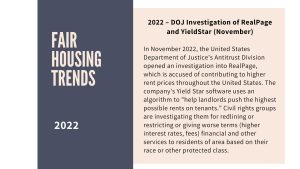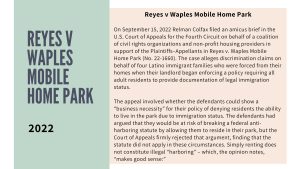On November 15, 2022, the United States filed a statement of interest which explained that damages may be available to private litigants pursuing land use claims against municipal defendants under the Religious Land Use and Institutionalized Persons Act of 2000 (“RLUIPA”) because of the finding that Troy violated RLUIPA by (1) imposing an unjustified substantial burden on Adam Community Center’s exercise of religion in its effort to operate a mosque and (2) requiring places of worship to abide by more onerous zoning restrictions than places of nonreligious assembly.
Source: https://www.justice.gov/crt/recent-accomplishments-housing-and-civil-enforcement-section








